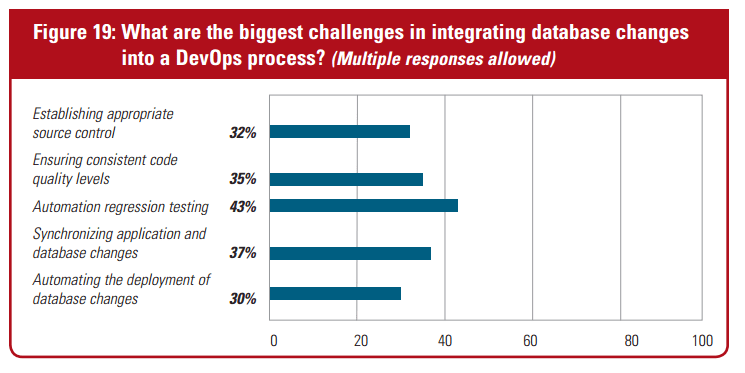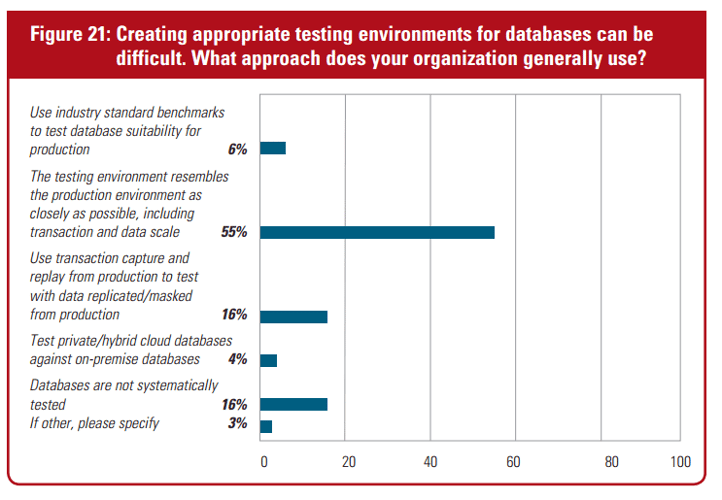Dell Software recently released a study on The Current State And Adoption Of DevOps, which surveyed over 1,000 IT professionals in order to better understand their experience with DevOps. More specifically, the study drilled into DevOps and associated practices as they relate to the database.
Change Is Hard
A prerequisite to effective DevOps is bridging the cultural gap between application development teams and IT operations groups. This is not an easy task, as development teams are focused on agility, while operations teams focus on stability; two goals that more often than not diverge.
While the transition to DevOps is complicated, the benefits of DevOps are significant. It’s therefore not surprising that around half the respondents are currently using DevOps, and more than a quarter indicated that they plan to adopt DevOps in the near future.
Can Organizations Toe The Line?
One of the things I found to be particularly interesting in the survey, was that those who already adopted DevOps are not using it exclusively. In fact, around one-third of users employ DevOps methodology in less than 20% of their projects and only around 10% use it on more than 75% of their projects.
That being said, more than 25% of the respondents believe they will be using DevOps for most of their projects in the coming years.
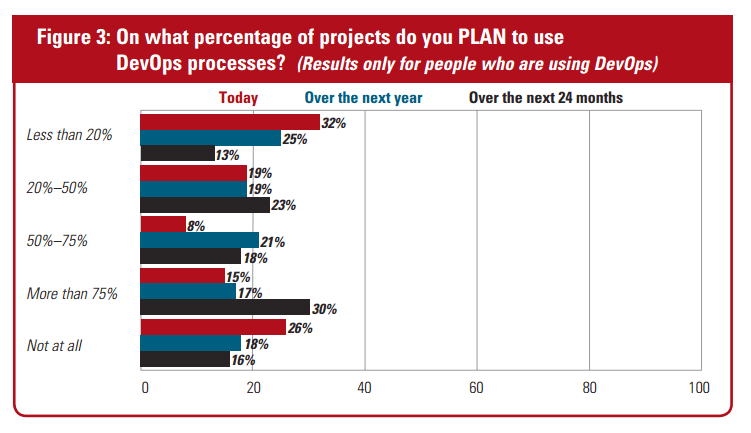 Image courtesy of The Current Stage and Adoption of DevOps, produced by Unisphere Research and sponsored by Quest Software.
Image courtesy of The Current Stage and Adoption of DevOps, produced by Unisphere Research and sponsored by Quest Software.
Applying DevOps To The Database
Organizations apprehensive about a full embrace of DevOps usually get stuck on the database. Incorporating database development and operations into the DevOps environment presents its own unique set of challenges and benefits.
Synchronizing and automating application and database changes is one of the primary concerns of IT professionals when applying DevOps to the database, as shown in Figure 19.
In addition, testing database changes represents an even larger challenge when applying DevOps to the database. The fast release cycle makes manual testing unfeasible, as database changes usually occur at a slower pace than would be needed for a DevOps approach. (See Figure 20.)
As Figure 21 reveals, a majority of companies try to create testing environments that closely resemble their production environments, which with DevOps is continuously changing. 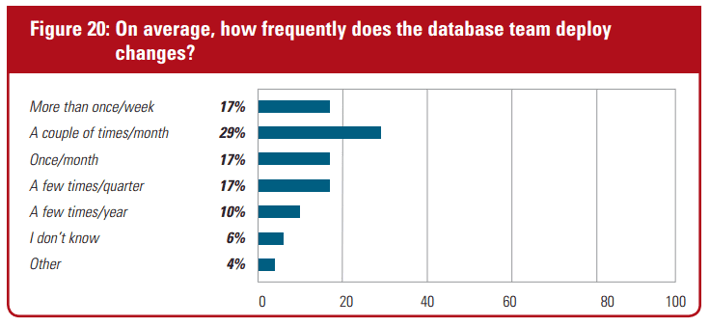
Interestingly, the rate of change in data volumes and data types is often cited as the primary challenge for data management. For IT professionals however, this does not appear to be a major concern when considering the incorporation of database development and deployment into the DevOps environment, as Figures 22 and 23 affirm.
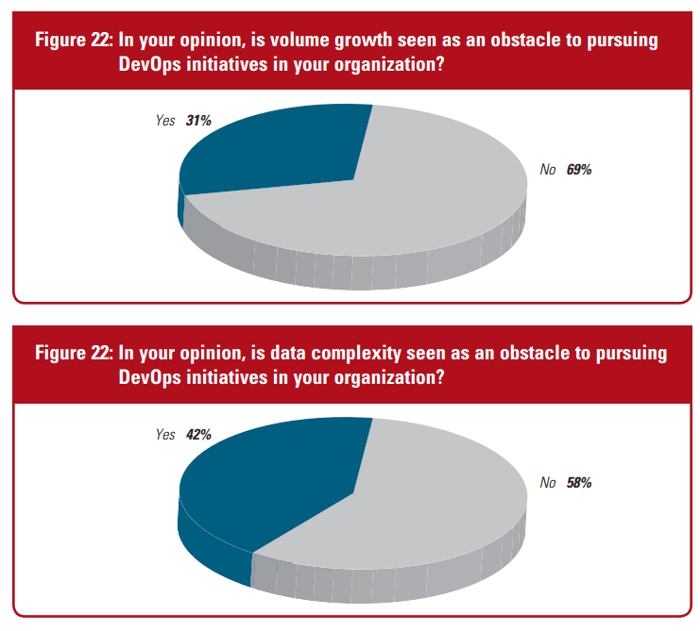
Above images courtesy of The Current Stage and Adoption of DevOps, produced by Unisphere Research and sponsored by Quest Software.
The Major Obstacle Is Cultural Not Technical
Another common misconception among DevOps spectators is that technical considerations hold up adoption across all departments. In reality, the main challenges come from company culture.
While less pronounced, the same kind of divisions that exist between application development and IT operations, are generally found between database developers and database administrators. Given their responsibilities, each have an inherently different approach to change.
The Benefits of Applying DevOps To The Database
Nevertheless, the potential benefits offered by DevOps approach are compelling. The key to successfully embracing DevOps – database included – is a combination of strong leadership, the ability to create efficient cross-functional teams, and the willingness to invest in the effort.
While DevOps is still not as widespread as an enthusiast like me would hope, it’s still proven itself time and again to be a winning approach to application development and deployment. It’s for this reason that interest in adopting DevOps is growing rapidly, and is expected to continue to spread across all industries.
How To Choose The Right DevOps For Database Solution
Choosing the right DevOps for database solution is critical. The right solutions streamline development processes, facilitate automation, reduce errors, and increase productivity. But not all DevOps for database solutions are created equal.
CIOs and database administrators need to ask themselves the following questions before choosing the right solution.
- What features are critical in selecting a DevOps for database solution?
- Do these solutions integrate with the tools your development team is already using?
- What impacts will the change have on workflows and productivity?
The database’s limitations are slowly disappearing as solutions have been put in place that allow for expedited and more secure processes. For organizations looking to embrace and lead digital transformations, applying DevOps to the database will be key to their long-term success.




